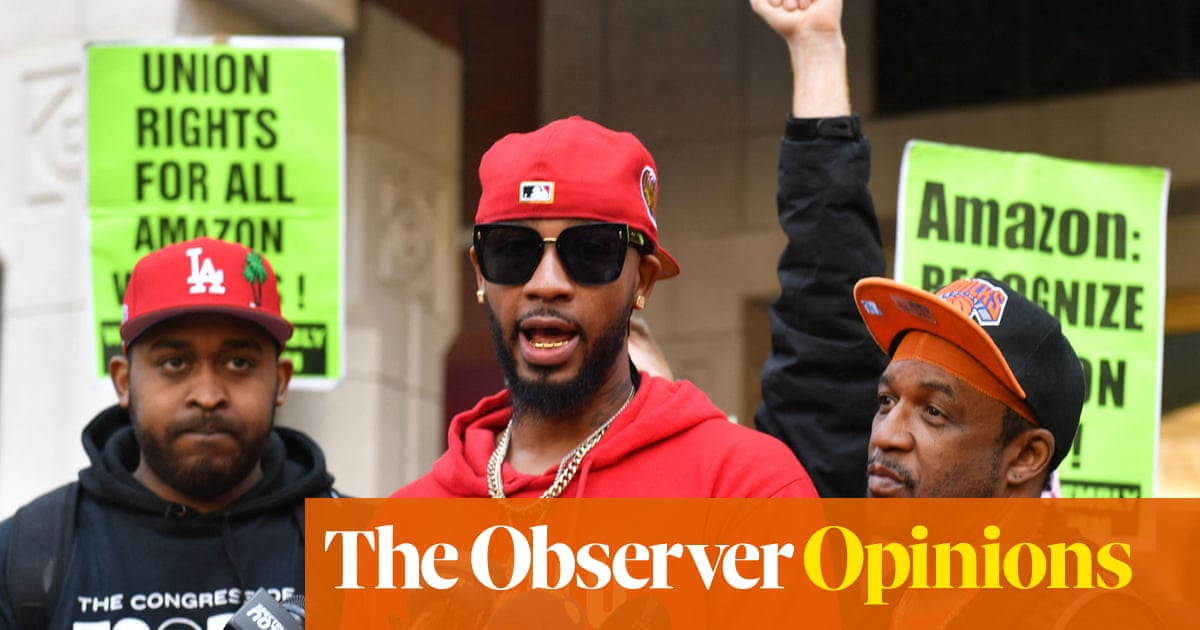Amazon creates a bureaucratic pretzel for disabled employees

As America's second-largest private employer, Amazon sure makes it hard to be an employee, especially if you're disabled. A recent change in their policy for disabled employees — that appears to align with their five-day-back-to-the office mandate set to start in January — puts employees into a bureaucratic pretzel. Disabled remote employees, or office part-timers are assigned "accommodation consultants." They are also must acquire a letter from a doctor, do leadership reviews, and will likely have to answer questions about their life outside of work, and share the details of their medical situation.
If you're an Amazon employee, it's now a lengthy process to prove you're disabled. It's a bureaucratic pretzel.
This can be invasive and uncomfortable, time consuming, and take tubs of will power to overcome. Paperwork, approvals, wait times, inquisitive questions — these are the dull instruments of the powerful and resourced used on the less powerful and low-resourced.
There's often a hidden condescension in this type of process: to see if you deserve different treatment and allowances. To prove you deserve accommodation. To be marked different.
Ironically, Amazon wants people back in the office so Amazon can cut down on bureaucracy and strengthen their culture. But to get there, they are using a gob of bureaucracy to filter and examine their disabled employees — and deciding who may or may not be worthy of an exemption to work outside the office five-day work week. Amazon denies this tactic is being used to eliminate staff, but many don't see it that way.
I see this as Amazon leadership wanting more opportunities for "tacit knowledge." The knowledge you get from experience and pass along to younger, or inexperienced colleagues. It's best passed along at lunch counters, walks in the halls, and swiveling in chairs at the office. It's passing experience through story, anecdote, and the soft communication of the hangout. Tacit knowledge is often better transferred in-person over zoom, or through a handbook.

Fine, I can see the point of wanting to bring people back to the office. But to force employees who identify as disabled — and who can do the work, are doing the work successfully from home — into a bureaucratic pretzel, isn't fair. How many disabled employees will quit so they don't want to go through this new process? Or if the process deems them not disabled enough? Will this process be fair? What if to stay in the job, an employee has to go to the office and suddenly has a more difficult commute more often, or an illness that makes it hard to be in an office for several hours? All unknown.
Identifying as disabled always requires more bureaucracy. Being disabled usually requires some or combination of more medicine, doctor visits, applications, equipment, infrastructure. But to have to show your identify to an employer — through a convoluted process — is dispiriting, insulting. I can only imagine the difficulty of being one of these employees. I imagine they must feel strange to their employer. Like the employer would prefer they were abled bodied and be willing to be in an office five days a week for eight-to-ten hours a day. For knowledge and white collar work, it's a traditionalist setup that no matter you're body, is constantly being questioned.
A silver-lining of the pandemic era was the rise of disabled employment. In 2023, 22.5% of people with disabilities were employed — the highest since the Bureau of Labor Statics started counting in 2008. The Zoom era affords opportunities to those who normally wouldn't have had a shot at big employers, or positions only in mega city centers. Having disabled individuals in your workforce opens the talent pool, and makes organizations stronger, makes a society stronger.
https://www.bls.gov/news.release/pdf/disabl.pdf
But of course Amazon is known for creating difficult circumstances for many of their employees. Delivery drivers monitored for signing in their vans because it causes "distracted driving." Warehouse workers forced to pee in bottles. A company that fires critics or outspoken employees. This is why some employees fought to be in a union: better pay, better benefits, better conditions. Conditions in stark contrast to the billionaire owner flying off into outer space.

Disabled-identifying individuals who can't make it to the office, or make it five days a week, deserve an opportunity to work, if they can and want. Sure culture matters in the office, but culture can be formed in other ways. Imagination and wiliness can create more inclusion. Many such disabled individuals find ways to live on the internet — technology can offer opportunity and access to talent. An open-minded and creative company can offer opportunity, other ways, too, rather than twisting possibility behind obstacles and red tape.
See story from Bloomberg:






Member discussion